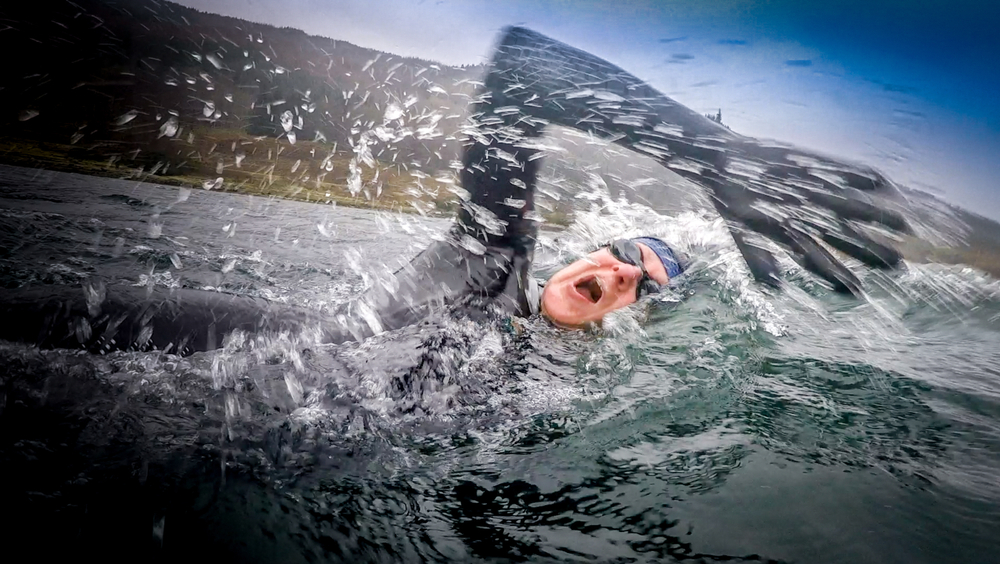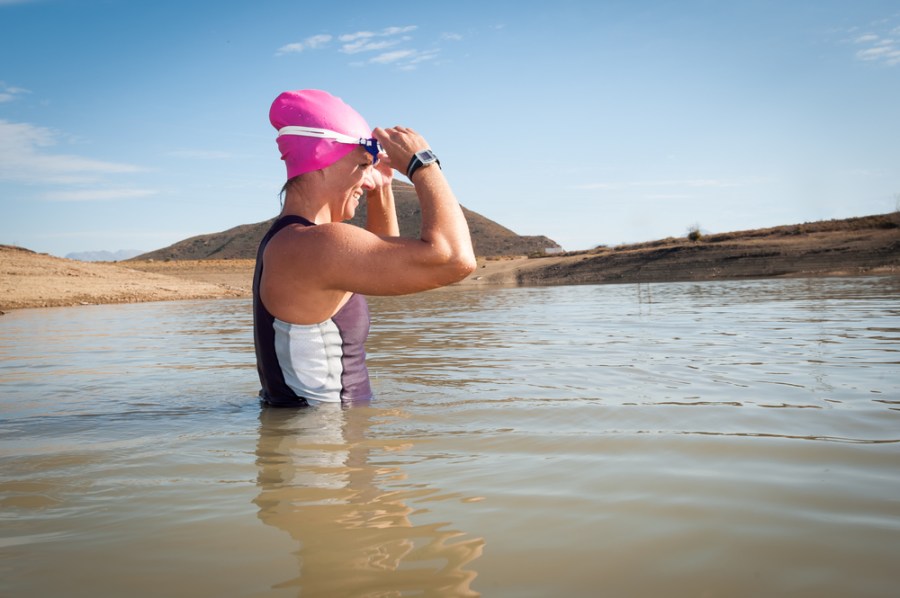Want to discover the joys of open water swimming (yes, even in winter!)? A dip outdoors can boost everything from your circulation to your mental health. Claire Chamberlain suggests how to get started.
Wild swimming (especially at this time of year) can seem like a bizarre activity to the uninitiated – after all, stripping off your layers and plunging into ice-cold water sounds more like hideous purgatory than joyful pursuit. Yet more and more of us are dipping our toes into this extreme sport. So what’s the appeal?
Colin Hill is a cold-water swimming specialist based at Ullswater, in the Lake District. He has been Winter/Ice Swimming World and UK Age Group Champion for 450m, and in 2020 he placed third in the world 1km Winter Swim World Championships in Slovenia.
‘I’ve been winter swimming for well over a decade, and I think the kindest thing people called me in the past was probably “a bit eccentric”,’ he says. ‘But now, cold water and winter swimming is gaining in popularity, both from a necessity of people wanting to get out there and feel alive during the lockdown, as well as the mental wellbeing side. When you swim in the winter, you are aware of all your senses.’
Hill, who is the open-water swimming coach at Another Place, The Lake says the endorphin hit you get from wild swimming is like nothing else.
‘There are so many short-term benefits, from the buzz you get as you come out of the water, to the tingling that can stay with you even when you reach your office,’ he says.

Immersed in nature
Of course, being at one with nature also plays a huge part in the sense of wellbeing of the swimmer’s experience.
‘The connection to nature and the freedom of just swimming in open water is bliss,’ says Laura Bell, wild swimming enthusiast and founder of Zest Life. ‘There is no end of lane, no chlorine, no other swimmers around you – it’s far more relaxing. You might not be in the water for as long [because of the cold], but you certainly feel calmer.
Well-documented physical benefits of cold-water swimming include increased metabolism, improved circulation and a boosted immune system – something that’s of high importance in the current climate.
‘Regular cold-water swimmers say they catch fewer colds, which seems counterintuitive, but your body receives a jolt as you enter the cold water, which kicks your immune system in,’ explains Hill.
Safety first
Of course, swimming in cold water does not come without risks. ‘Wild or open-water swimming has become even more popular in recent years, especially now with lockdown restrictions closing swimming pools and lidos for much of 2020,’ says Gabbi Simmonds, RNLI Water Safety Education Manager. ‘With its physical and mental health benefits championed by many, the RNLI wants to ensure everyone enjoys taking part safely, especially in the colder winter months.’
Simmonds says one of the biggest risks of open-water swimming is the temperature of the water.
‘This can cause cold water shock in the first few minutes of immersion, but also lead to swim failure and hypothermia the longer you stay in,’ she says. ‘The effect on the body when entering water below 15°C can often be underestimated.
Cold water dip
‘The temperature of the air and water is important when you’re considering a cold water dip or open water swim. The colder the water and air temperature, the quicker you will cool down afterwards. So, the colder it is, the less time you should spend in the water. There is no set guide to the length of time you should stay in, it really depends on your body. It’s vital to build up your time in the water gradually.’
To help reduce the risks, Simmonds offers the following advice:
‘Ensure you are warm before entering the water, do not overstay your welcome by swimming/dipping for too long, know your limits and acclimatise slowly,’ she says. ‘Wear a wetsuit for an extra layer of warmth and buoyancy, and get dry and dressed straight after getting out – a changing robe can be very useful, as is having a nice hot drink waiting for you.’
There are other important steps you can take to ensure you stay safe in open water. Here are the RNLI’s top tips:
- Be prepared (check the weather conditions and tides. Ensure you go to a familiar place and seek advice from a health care professional, especially if you have underlying health conditions, particularly cardiac).
- Never go alone.
- Acclimatise slowly to avoid cold water shock – never jump or dive straight in.
- Always be seen – wear a bright coloured swim hat and consider using a tow float.
- Stay within your depth.
- Float to live – if you get into the water too quickly, you may experience cold water shock. If this happens, or if you find yourself in difficulty during your swim, fight your instinct to thrash around. Instead, relax and float on your back until you can control your breathing and the shock passes.
- If in trouble (or you see someone in trouble) – call 999 or 112 and ask for the coastguard.







